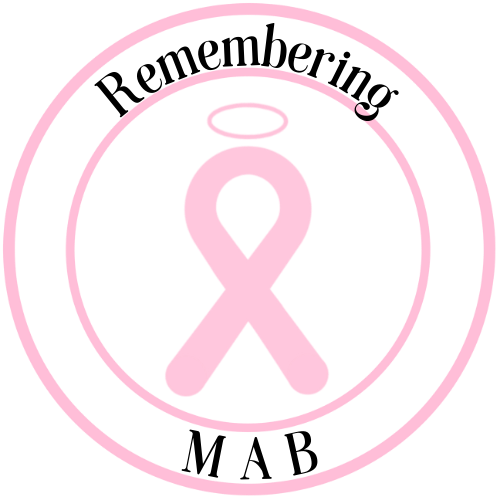Therapeutic Approaches in the Healing Journey: Tools for Transformation
Embarking on the journey of healing is a profound and often deeply personal endeavor. In the expansive landscape of therapeutic approaches, there exists a diverse array of tools—each with its unique qualities and capacities to facilitate transformation. This exploration delves into the therapeutic toolbox, offering a kind and gentle examination of approaches such as Cognitive-Behavioral Therapy (CBT), mindfulness, and more. These tools are not just techniques; they are the gentle guides that therapists use to illuminate the path of self-discovery, emotional healing, and the cultivation of resilience.
The Compassionate Lens of Cognitive-Behavioral Therapy (CBT)
Cognitive-Behavioral Therapy (CBT) stands as a compassionate lens through which individuals can examine the intricate interplay of thoughts, feelings, and behaviors. It gently encourages a shift in negative patterns, guiding individuals to reframe thoughts, challenge limiting beliefs, and develop healthier coping mechanisms. CBT becomes a tool for fostering self-awareness, empowering individuals to navigate their emotional landscape with a newfound sense of clarity and resilience.
Mindfulness as a Guiding Light
In the gentle realm of mindfulness, individuals find a guiding light that illuminates the present moment. Mindfulness-based approaches, such as Mindfulness-Based Stress Reduction (MBSR) or Mindfulness-Based Cognitive Therapy (MBCT), become tools for cultivating awareness, promoting acceptance, and fostering resilience. Mindfulness gently encourages individuals to observe their thoughts without judgment, creating a space for emotional healing and self-compassion.
Expressive Arts: Painting the Journey of Healing
Expressive arts therapies, including art therapy and music therapy, provide unique tools for individuals to express and process emotions that may be difficult to articulate verbally. These creative approaches become gentle companions in the healing journey, allowing individuals to explore and communicate their inner experiences in ways that extend beyond words. It's a form of self-expression that can be both liberating and transformative.
Interpersonal Therapy: Nurturing Connection
Interpersonal Therapy (IPT) places emphasis on the impact of relationships and social interactions on emotional well-being. It becomes a tool for individuals to explore and improve their communication and relational skills. Through the gentle guidance of IPT, individuals learn to navigate interpersonal challenges, cultivate healthier connections, and develop a support network that contributes to emotional healing.
In the hands of skilled therapists, these therapeutic approaches are not merely tools; they are gentle companions on the journey of healing. Each approach serves as a unique facet in the mosaic of self-discovery, emotional healing, and resilience. The therapeutic toolbox is not prescriptive but rather adaptive, with therapists tailoring their approach to the individual needs and preferences of each client. In the gentle embrace of these tools, individuals find not only pathways to healing but also the strength to transform and bloom into the fullest expression of themselves.
Harmonizing Healing: The Gentle Art of Acupuncture on Your Wellness Journey
Acupuncture is a time-honored healing practice rooted in traditional Chinese medicine that embraces a holistic and gentle approach to well-being. It involves the insertion of thin needles into specific points on the body to stimulate energy flow, known as Qi, and restore balance. Imagine these needles as gentle guides, encouraging your body's innate healing capacity. As you embark on your healing journey, acupuncture gracefully addresses a myriad of physical and emotional concerns, fostering harmony within. It seeks to alleviate discomfort, ease tension, and promote relaxation, allowing your body to embrace a state of equilibrium. The experience is often serene, akin to a rejuvenating embrace, as acupuncture invites you to reconnect with your body's natural rhythm and rediscover the gentle path to healing.
Going through cancer, or any other life event, can be very difficult at times. I have personally used several of the therapy methods listed above. Each therapy type brought about a different type of healing, but none resulted in instant healing. Healing is a process, a journey. Just as you need more than one specialist to heal a physical injury, such as an emergency room doctor, a surgeon, and even a physical therapist; you may need more than one kind of mental health professional to help you achieve your mental health goal. The important thing is that you continue seeking until you get the help you need.
Wishing you all the best,
Kelly
Are your cancer screenings up to date?
Yes, I am a nurse. No, I am not your nurse. The medical topics discussed in this, or any article on this site, are intended to be issues for you to discuss with your medical team if you feel they apply to you. None of the information you are about to read in this article is treatment advice for you from me. I do not have that authority.

Hi, I’m Kelly. I am here to help you and your loved ones navigate your cancer journey with information and encouragement.
I have been both a cancer patient and a cancer patient supporter. I get what you, the cancer patient, are going through. But I also get what you, the cancer patient supporters, are going through.
I wish I could take this nightmare you are experiencing and turn it into a pleasant dream.
But I can’t.
So, what I can do instead is infuse as much hope and determination as is possible into this website for you. Here you have a place to find inspiration and support. A place to turn the chaos of cancer care into clarity.
Yes, I am a nurse. No, I am not your nurse. The medical topics discussed in this article are intended to be issues for you to discuss with your medical team if you feel they apply to you. None of the information you read in this article is treatment advice for you from me. I do not have that authority.